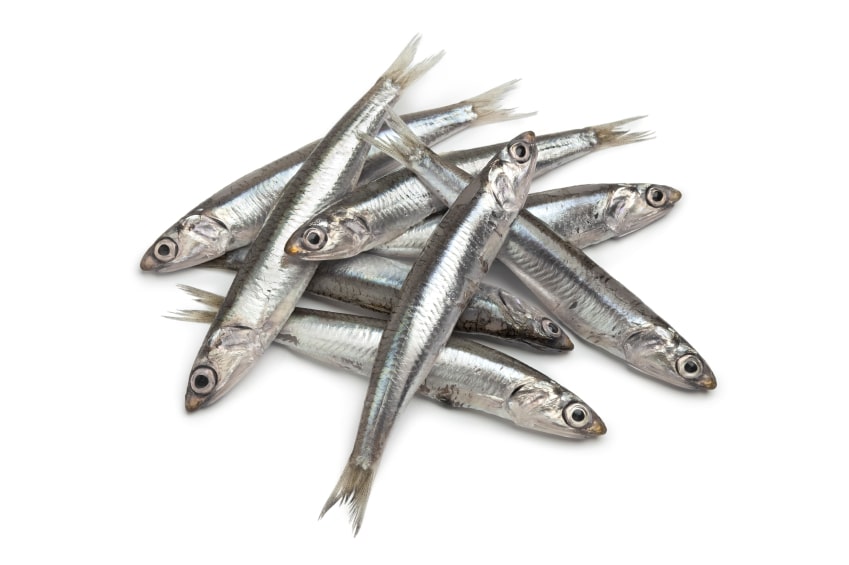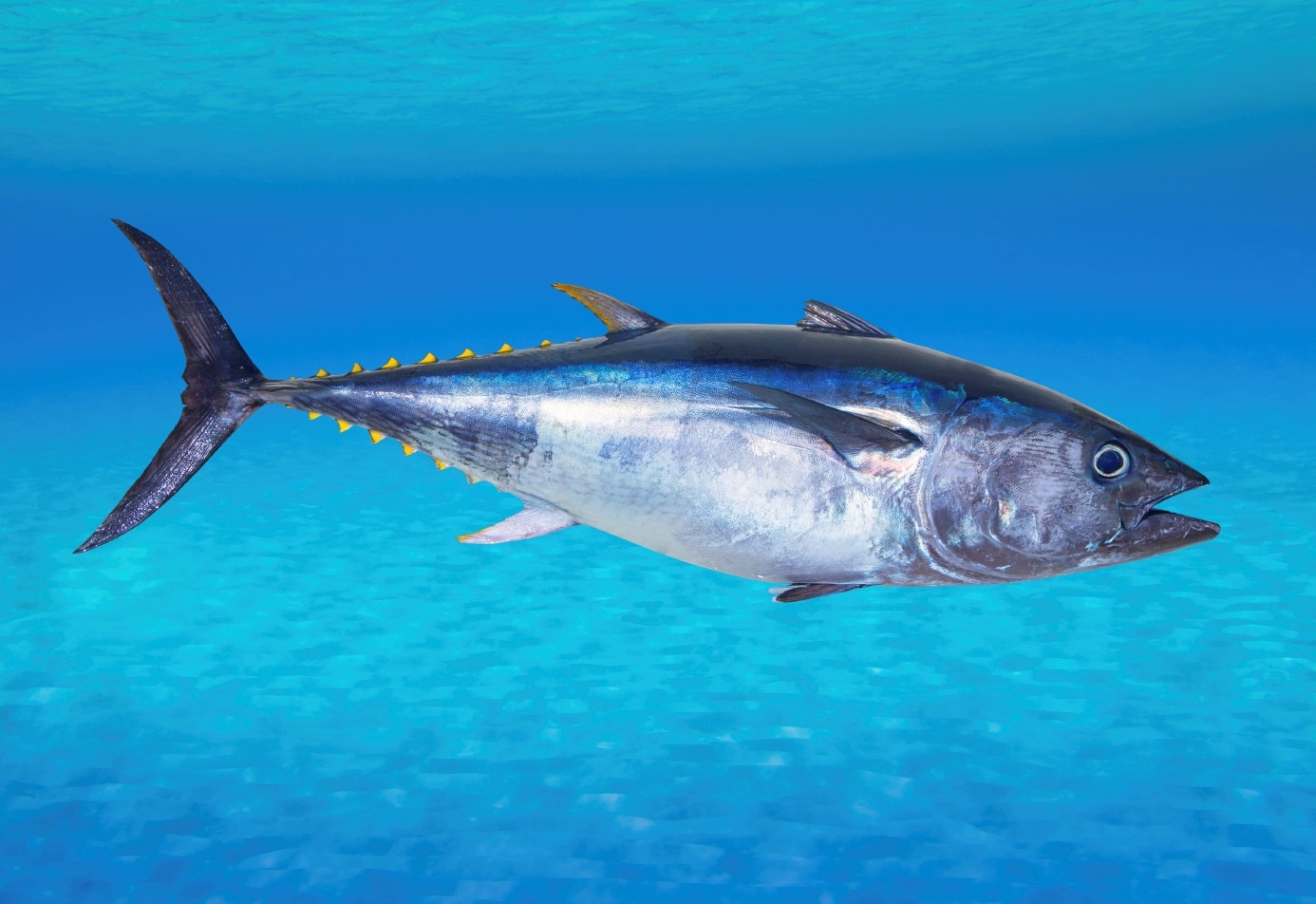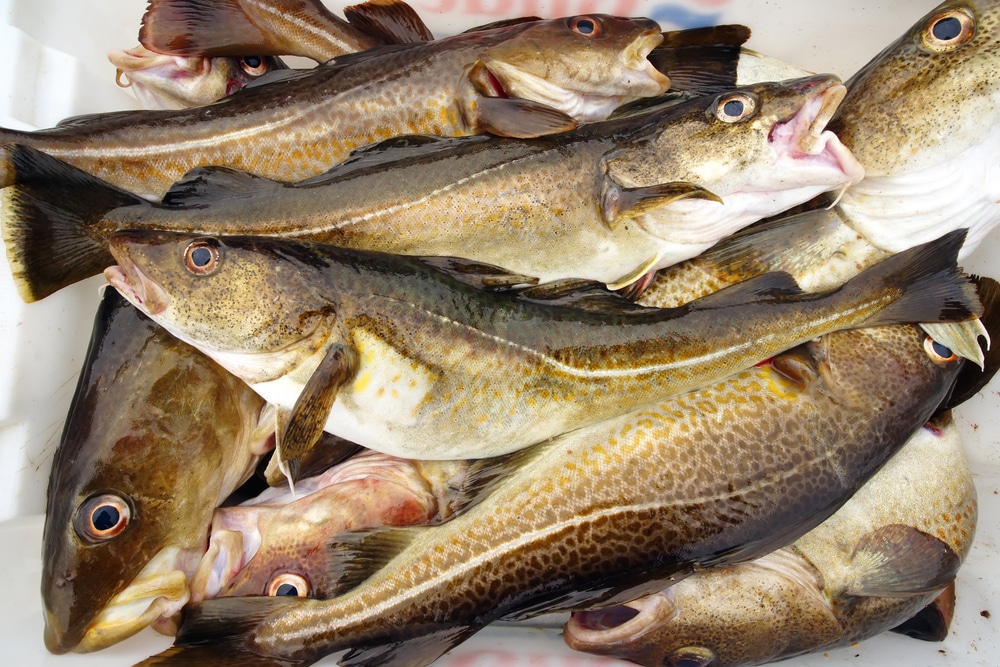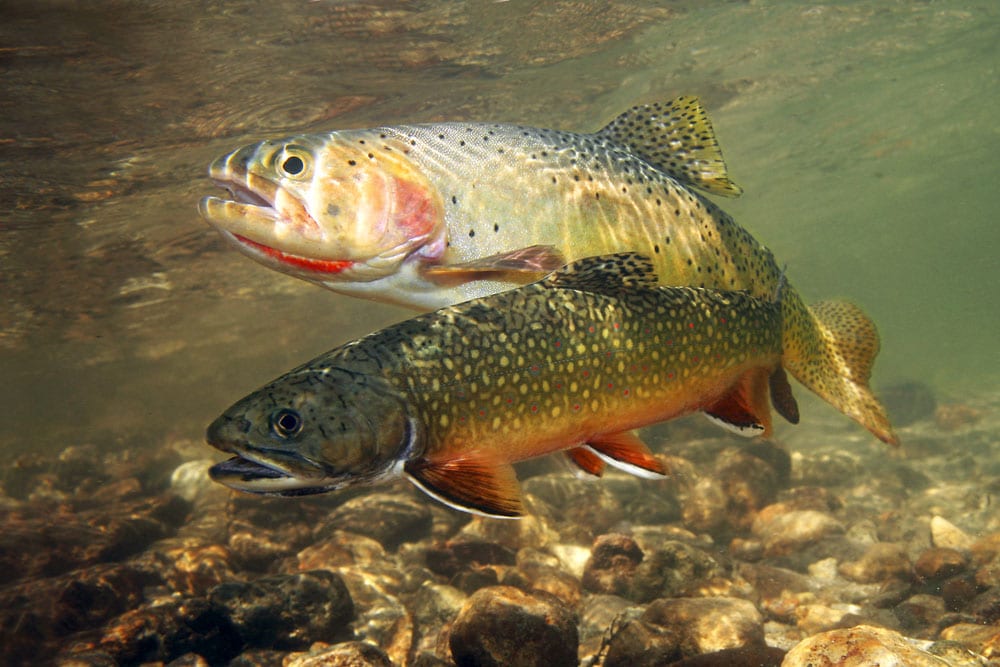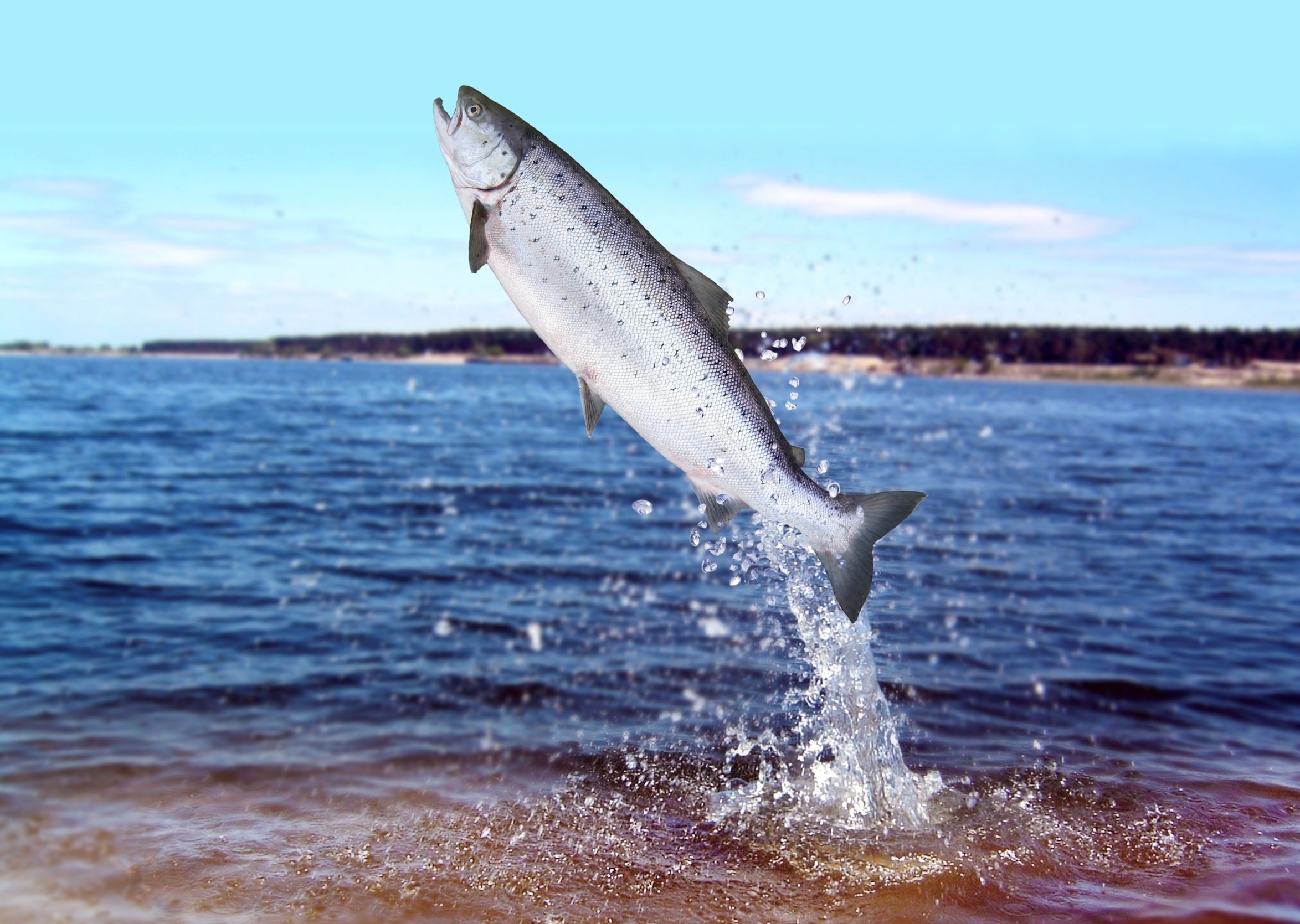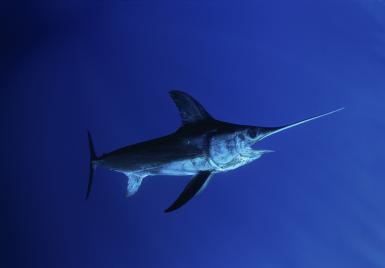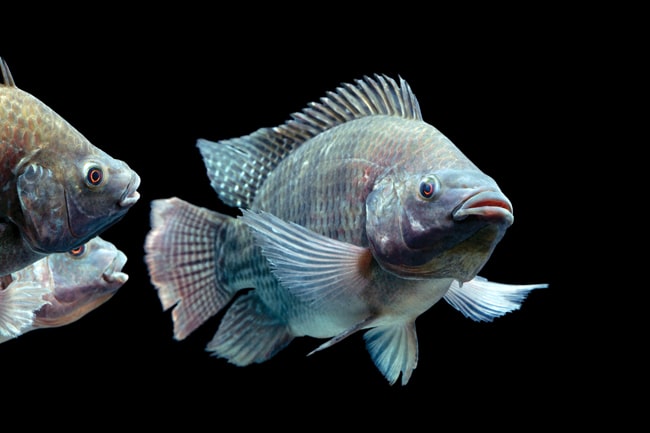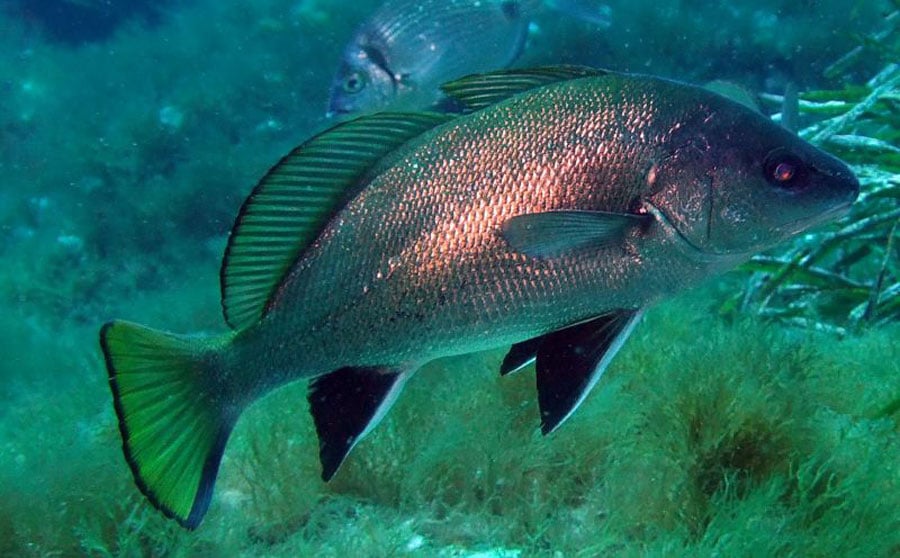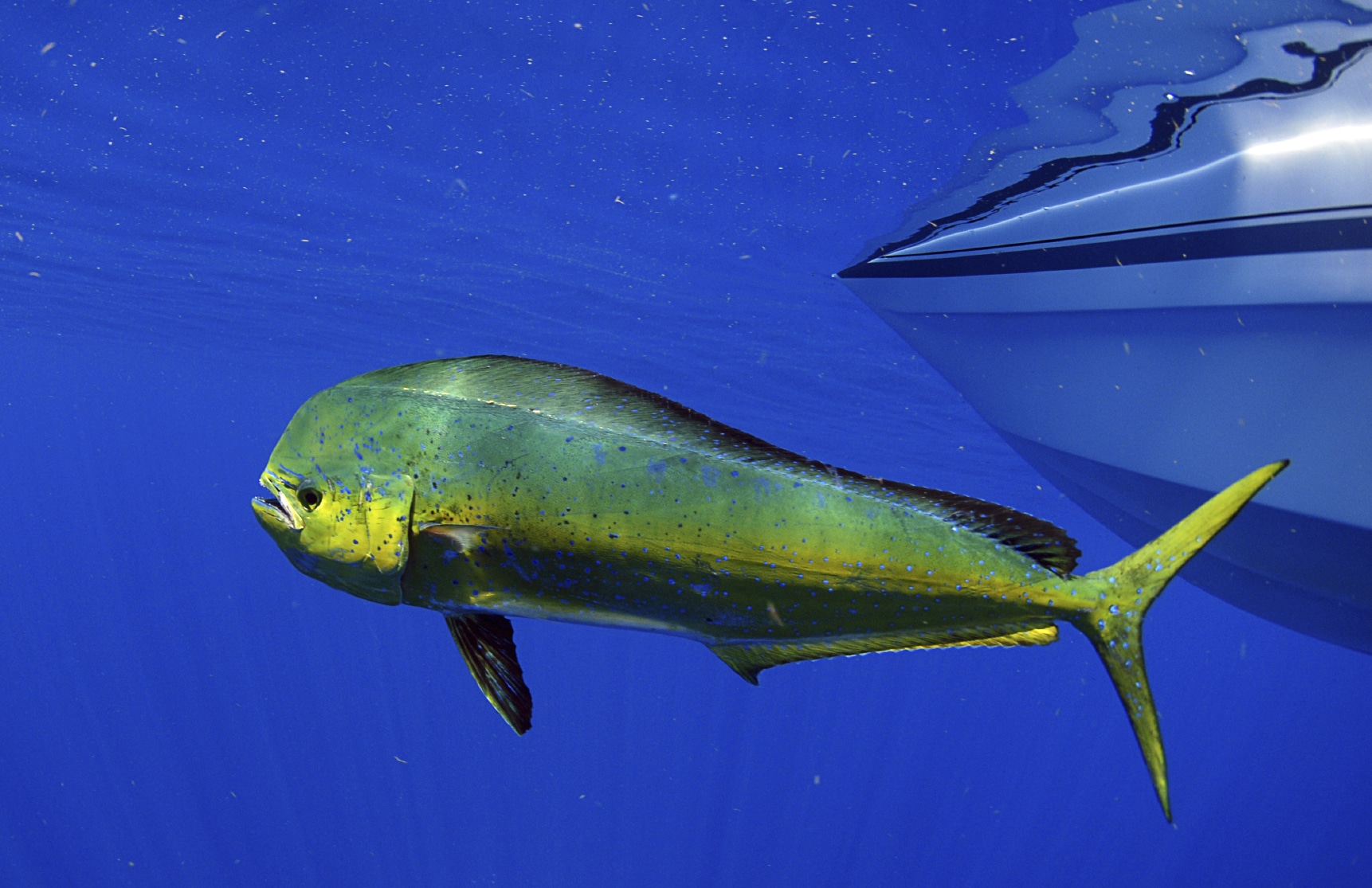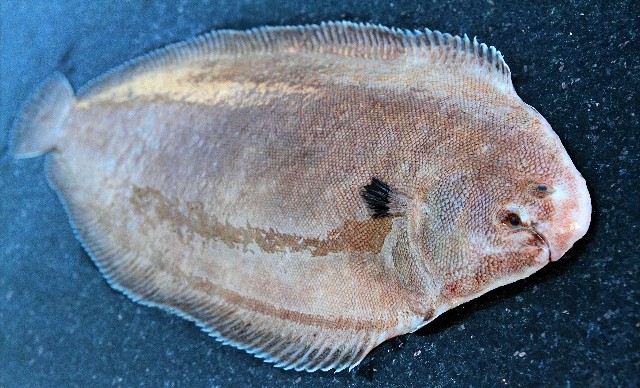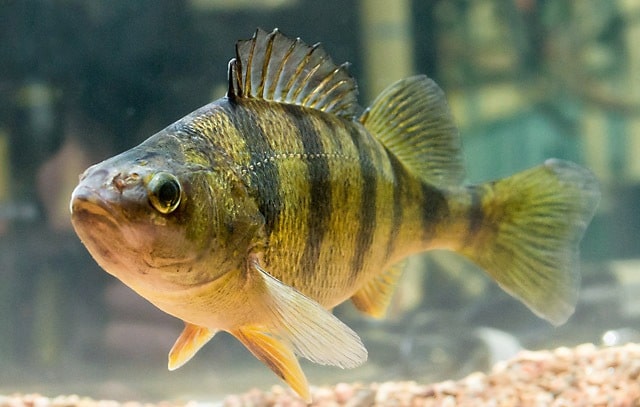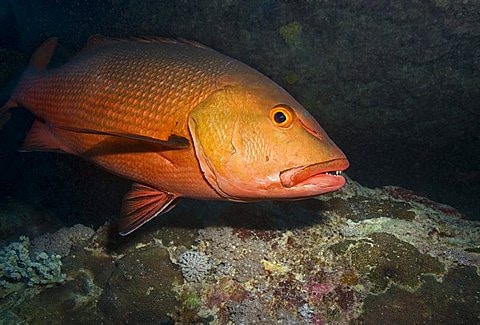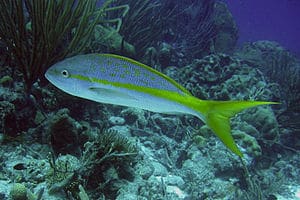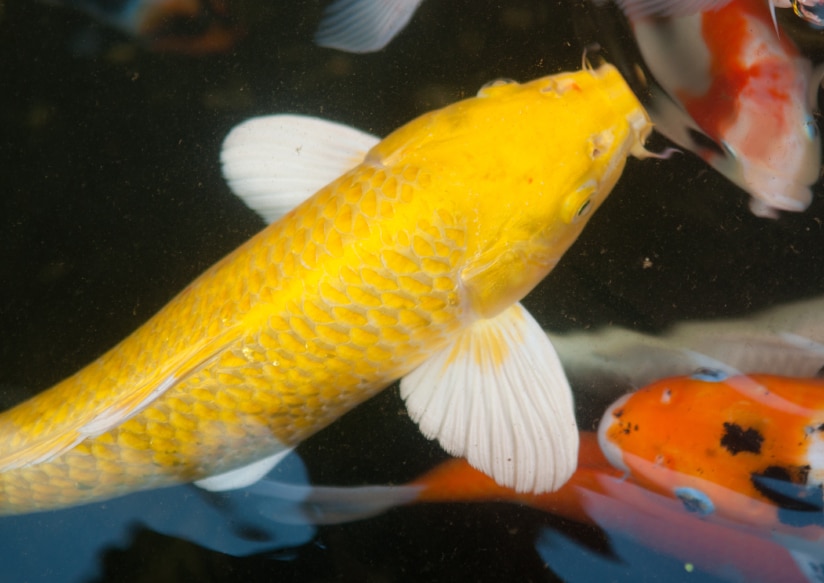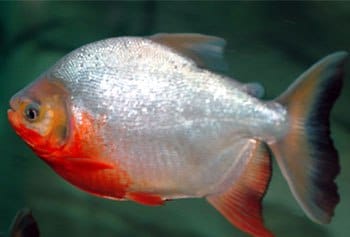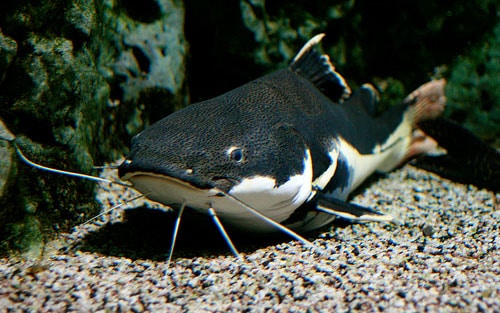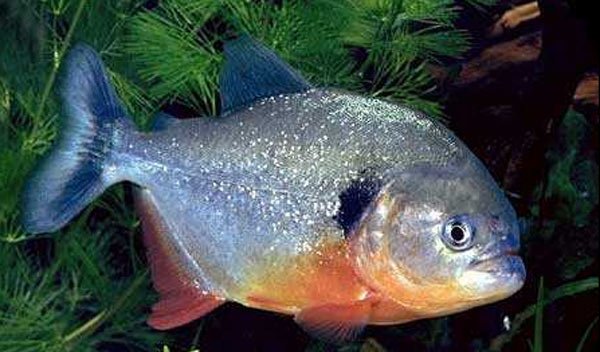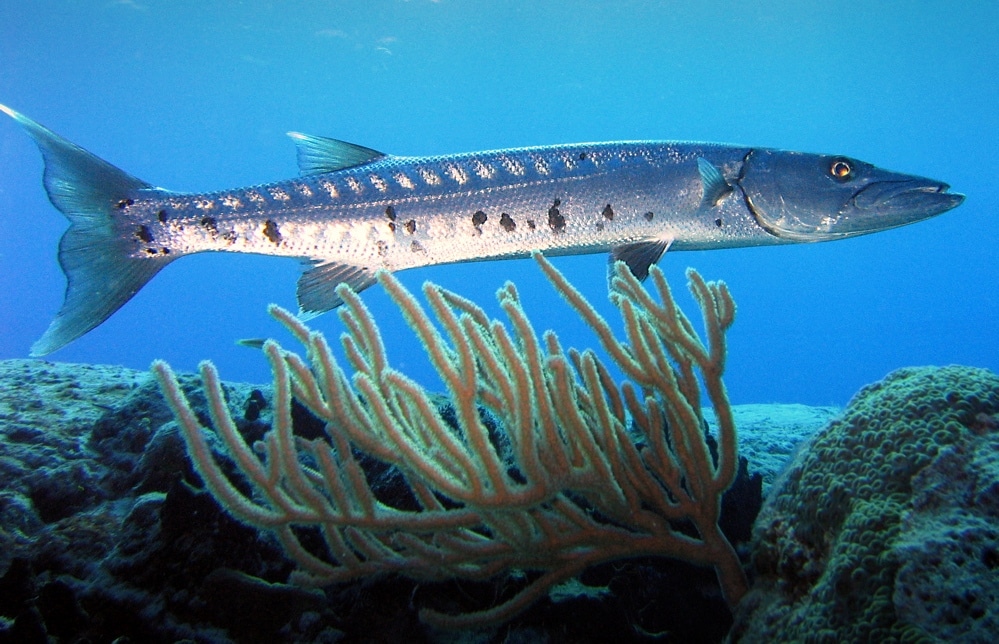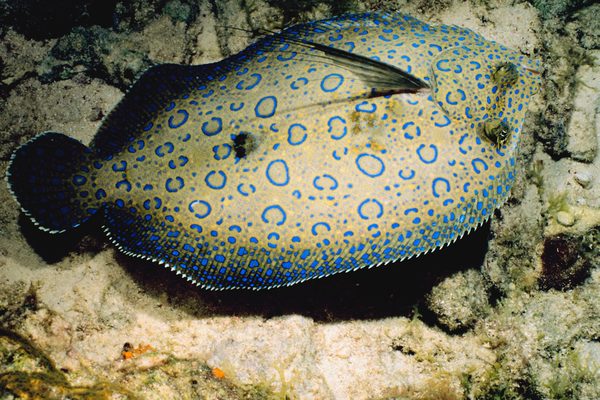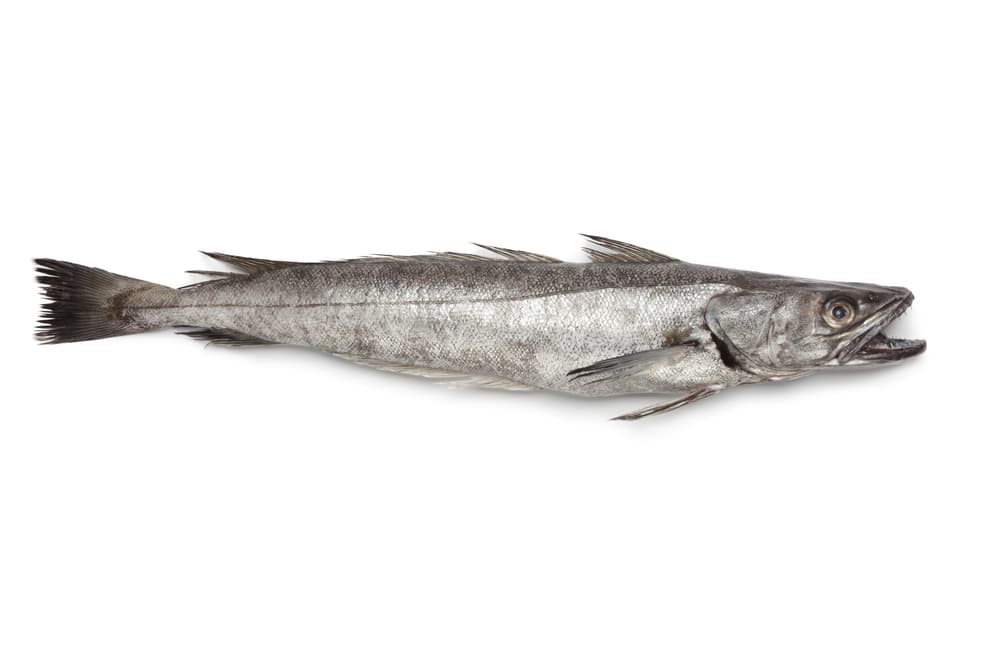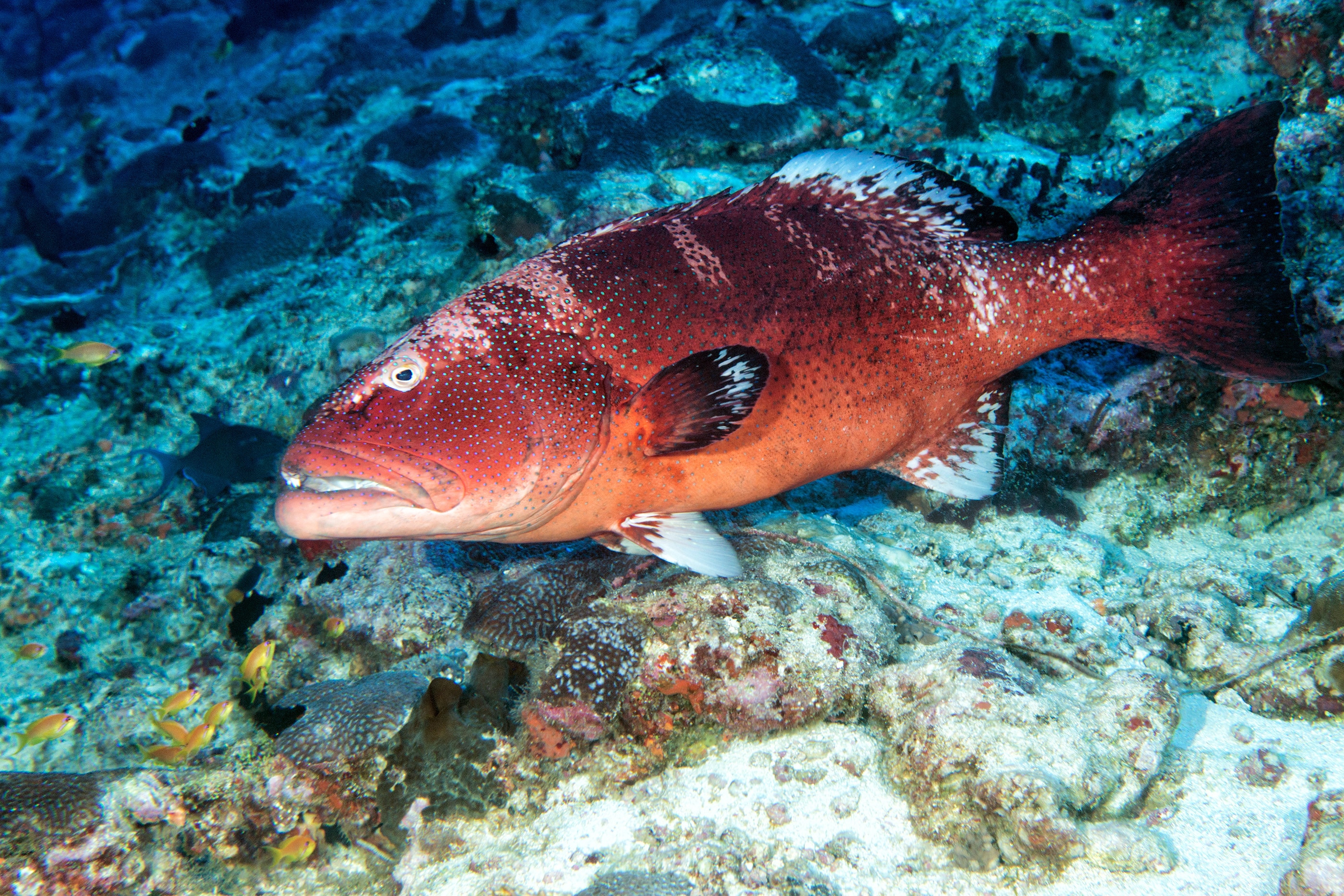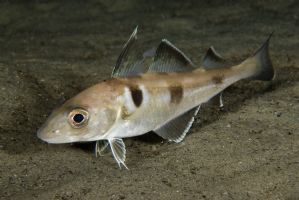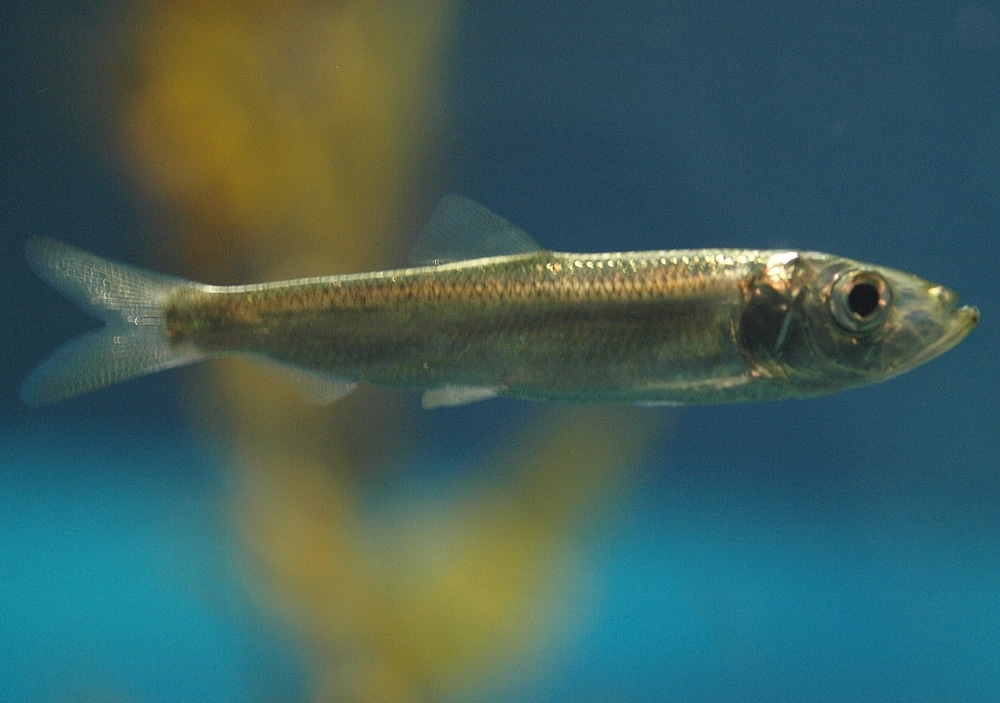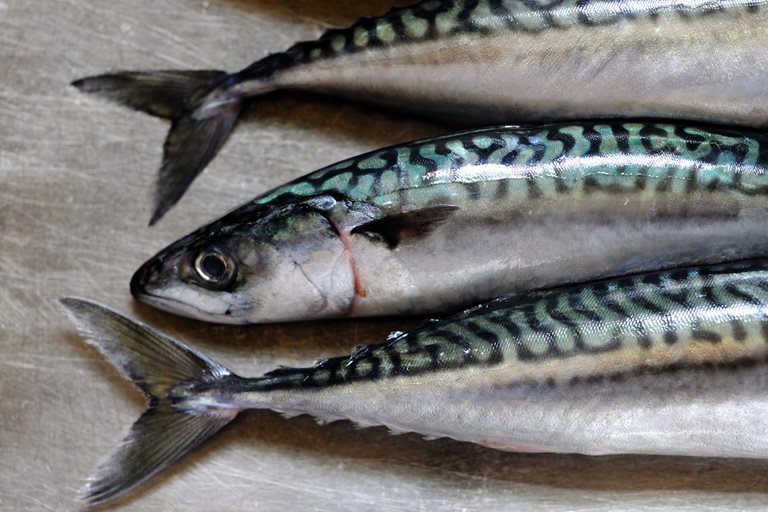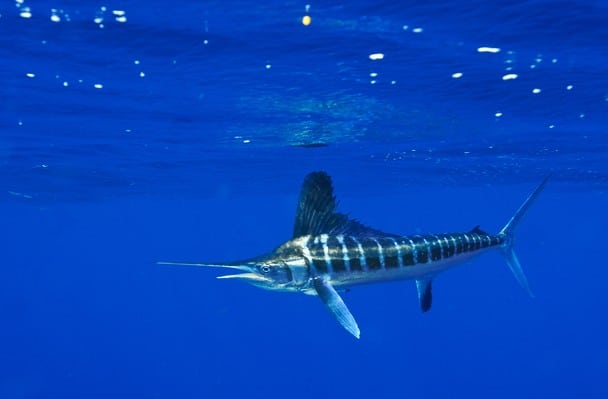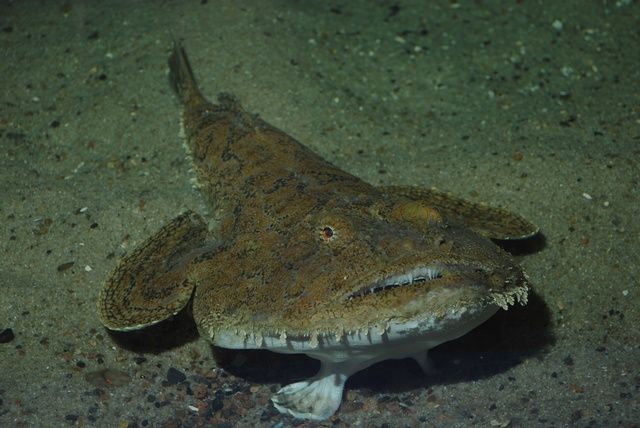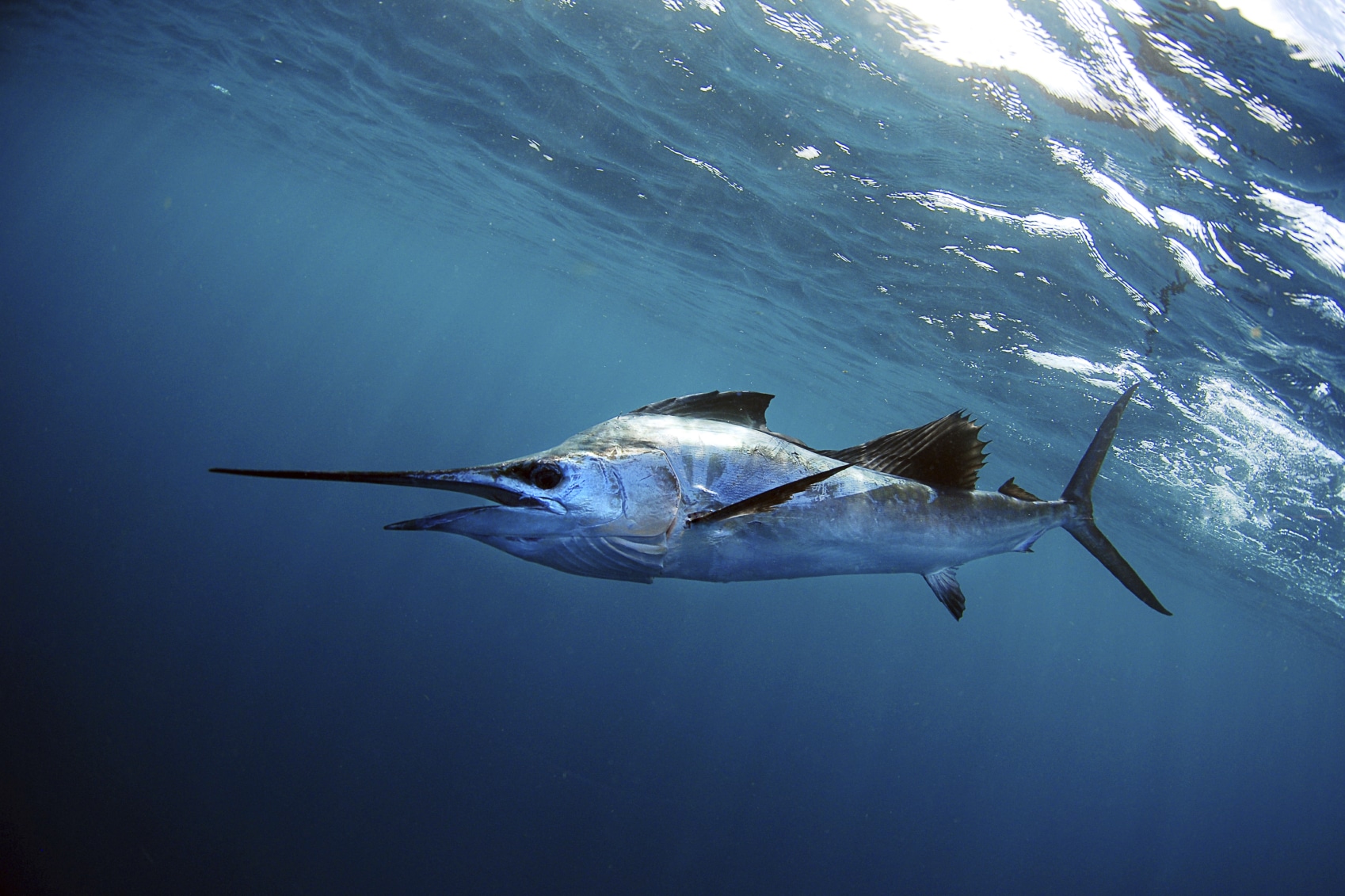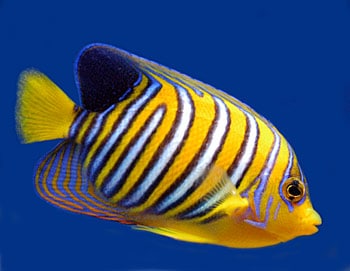Go Fish! 30 Spanish Fish Names Every Traveler Oughta Know
1. La Anchoa= English: Anchovy

Sardines are sold in cans in Spanish-speaking countries, just like in our home countries. So, you can talk about people being squished together, just as you would in English, with the metaphor estar como sardinas en lata (to be like sardines in a can).
3. Atún=English: Tuna
In Spanish-speaking countries, tuna is every bit as popularly eaten and sold in cans as it is elsewhere in the world. That means you can watch funny commercials or listen to catchy jingles to remember the word atún and other Spanish language words.
4. El Bacalao=English: Cod
This fish is so prevalent in cooking and culture, that it’s even a common last name! There’s also a cute Latin American saying that goes “¡Chao pescao, bacalao!” (Bye fish, bacalao!) which is the equivalent of our “See you later, alligator!”.
Dried, salted bacalao is found all over the Spanish-speaking world. One notable dish where it’s used is the Ecuadorian fanesca, a delicious stew featuring salty bacalao and 12 different types of grains and legumes, which is cooked for the Easter Holy Week.
5. La Trucha=English: Trout
In Mexico and parts of Central America, you can say “ponte trucha”—basically it’s an even more colloquial version of “ponte pilas.” Both expressions mean “look alive,” “be aware” or “open your eyes.”
6. El Salmón=English: Salmon
7. El Pez Espada=English: Swordfish
8. La Tilapia=English: Same
9. La Corvina=English: Same
This fish has a tender white meat which makes it a primo selection for ceviche and any kind of soup or stew.
10. El/La Llampuga=English: Mahi-mahi
Llampuga is a colloquial name for this fish in parts of Latin America where it’s more commonly fished (Gulf of Mexico, Caribbean and Central America) and even amongst Spanish-speaking Floridians, and the particle seems to flexibly change between el and la in speaking and writing. El dorado is another option
11. El Lenguado=English: Sole
12. La Perca=English: Perch
13. El Pargo=English: Snapper
14. El Jurel=English: Yellowtail
15. La Carpa=English: Carp
16. La Cachama=English: N/A
This type of fish is native to Amazonian rivers, so there’s no equivalent name in English. We commonly refer to it as cachama, pacu or tambaqui, all which have origins in Spanish and regional indigenous languages of the Amazon. If you’re heading on an Amazonian adventure, chances are you’ll feast on one of these big fish, fried with a side of yuca hervida (boiled yucca/cassava root).
17. El Bagre=English: Catfish
This is another fish you’ll find on the menu more often in Amazonian regions, and most often served in a simple caldo de bagre (catfish soup/broth).
This is a great word for describing anything tiny that bites or nibbles, like a teething infant or poorly-behaved chihuahua.18. La Piraña=English: Piranha
19. El Barracuda=English: Barracuda
20. La Platija=English: Flounder
21. La Merluza=English: Hake
While this is a popular Latin American choice as well, merluza is a go-to fish for restaurant dishes and home-cooked recipes in Spain.
22. El Mero=English: Grouper
23. El Eglefino=English: Haddock
24. El Arenque=English: Herring
25. La Macarela=English: Mackerel
Other common, colloquial words for this fish include la caballa (Latin America) and el verdel (Spain). Carite is the specific mackerel variety known as “king mackerel,” and it’s a common word to spot on menus in Latin America.26. La Aguja Azul/Blanca or El Marlín Azul/Blanco=English: Blue/White marlin
27. El Rape=English: Monk fish
28. El Pez Vela=English: Sailfish
29. El Tiburón=English: Shark
Here are a few kinds of sharks you might spot while traveling:
- tiburón martillo (hammerhead shark)
- tiburón tigre (tiger shark)
- tiburón ballena (whale shark)
- tiburón galapagueño (Galápagos shark)
30. El Pez Ángel=English: Angelfish
This fish is also sometimes called el escalar.
Next, you’ll want to describe what those fish were up to, for example, if they were swimming around in un cardumen (a shoal, a group of various fish species) or un banco de peces (a school of fish, a group made up of one single species). It would be fascinating to watch some smaller fish avoiding los predadores (predators).
To identify which species you’ve found while out and about, you’ll need to look at certain physical features. For example:
Separate from all this, you might engage in a different kind of fishing while on vacay—la pesca deportiva (sport fishing). Be sure to grab a caña de pescar (fishing rod / pole) and some convincing anzuelos / señuelos (lures). To learn more about fishing vocabulary, and fish vocabulary in general, check out the Panorama de Pesca, a popular Argentinian fishing magazine.
Here are some ways you might want to order fish off a menu.
pescado…
Then, of course, you’ve got your liquid-based fish foods:
An Introduction to the Fishiest Spanish Vocabulary
Before we jump into the fish names themselves, I’d like to give you an introduction to some other handy vocabulary that you’ll use when discussing fish in any capacity. Here, we’ll cover the three main ways you’ll talk about fish: (1) when observing them in their habitats, (2) when fishing and (3) when eating them!Observing? Here’s what you need to know!
Let’s say you’re ready to dive into the deep blue sea and observe fish in action, in their hábitats (habitats). You’ll need to know vocabulary for ecosistemas (ecosystems) where las especies (the species) of los peces (fish) dwell. First, you’ll want to indicate where you’ve been observing those fish:- el arroyo (the stream)
- el riachuelo (the creek)
- el río (the river)
- el lago (the lake)
- la laguna (the lagoon)
- el estuario (the estuary)
- la caleta (the cove)
- la bahía (the bay)
- el mar (the sea)
- el océano (the ocean)
Next, you’ll want to describe what those fish were up to, for example, if they were swimming around in un cardumen (a shoal, a group of various fish species) or un banco de peces (a school of fish, a group made up of one single species). It would be fascinating to watch some smaller fish avoiding los predadores (predators).
To identify which species you’ve found while out and about, you’ll need to look at certain physical features. For example:
- las aletas (fins)
- los radios de las aletas (fin rays)
- las escamas (scales)
- las manchas (spots)
- las rayas (stripes)
Fishing? Here’s what you need to know!
La pesca comercial (fishing) is a huge, exploding market. There’s pesca artesenal (artisanal fishing) and pesca industrial (industrial fishing). The gains of these fishing endeavors are sold internationally, in local supermarkets and in las pescaderías (fish markets). While you’re out shopping at the market, you’ll find tons of pescado del dia (fish of the day / fresh fish).Separate from all this, you might engage in a different kind of fishing while on vacay—la pesca deportiva (sport fishing). Be sure to grab a caña de pescar (fishing rod / pole) and some convincing anzuelos / señuelos (lures). To learn more about fishing vocabulary, and fish vocabulary in general, check out the Panorama de Pesca, a popular Argentinian fishing magazine.
Eating? Here’s what you need to know!
Order yourself a delicious filete (filet) of something, but always watch out for las espinas (the bones)! Often, filets and whole fish are served up on a plate, with some little, skinny, nearly-invisible fish bones intact.Here are some ways you might want to order fish off a menu.
pescado…
- frito (fried)
- hervido (boiled)
- al horno (baked)
- a la parilla (grilled)
- a la sal (salted)
- al vapor (steamed)
- al ajillo (in garlic sauce)
- al escabeche (marinated, pickled)
- rebozado (battered, similar to tempura)
Then, of course, you’ve got your liquid-based fish foods:
- sopa de pescado (fish soup)
- caldo de pescado (fish soup/broth)
- caldereta de pescado (fish stew)
- sancocho de pescado (fish soup/stew, traditionally cooked in Latin America)
- ceviche de pescado (a traditional coastal dish in parts of Mexico, Central America, and western South America, where fish is cured with citrus juices—not cooked!—and served with other fresh, natural ingredients)
